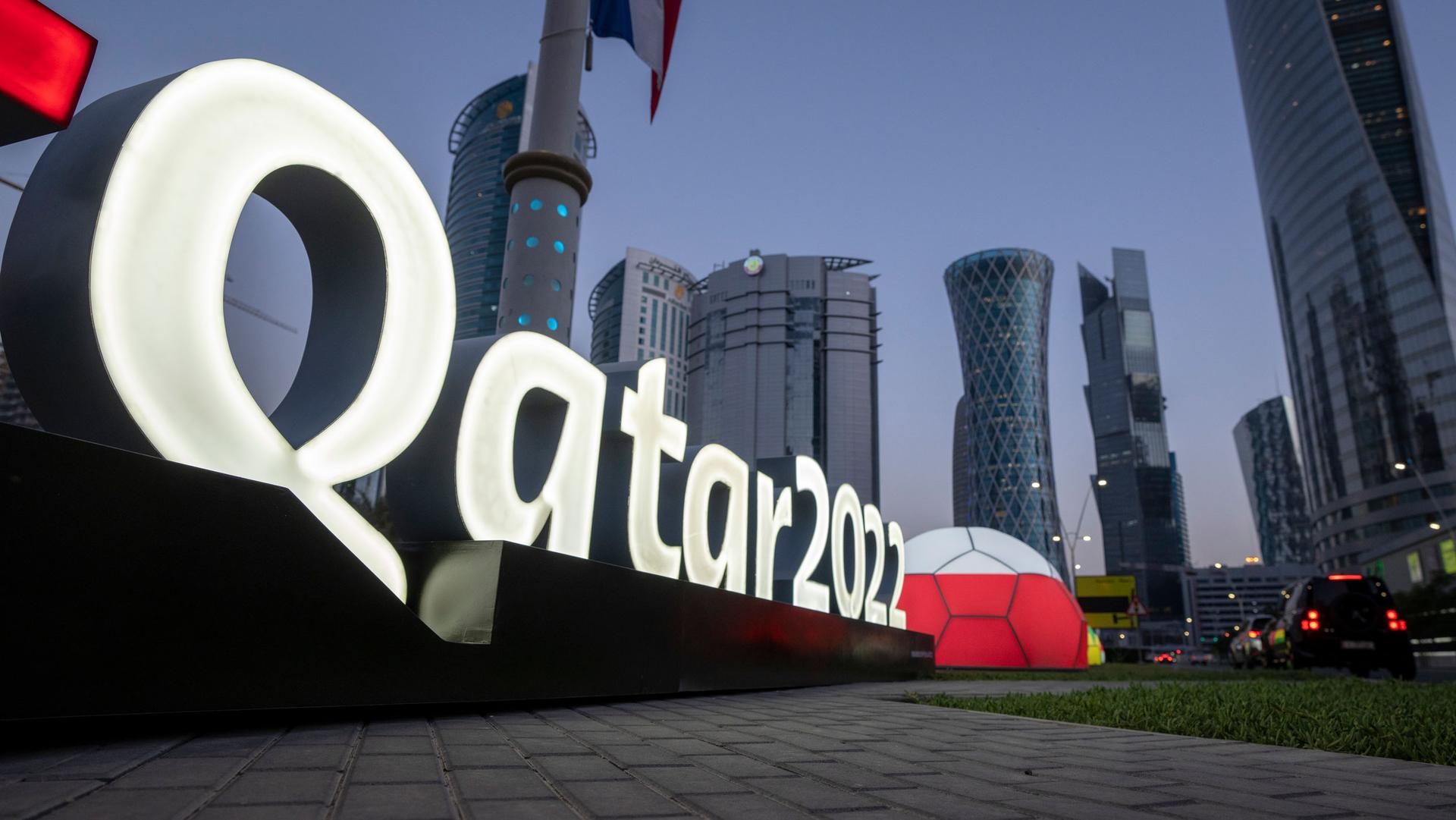On Aug. 14, protesters gathered outside the offices of Al Bandary International Group, a conglomerate based in Qatar, that has construction, real estate, hotels, food service and other ventures.
The group of workers blocked the street, as seen in videos posted on social media, demanding several months of overdue pay. But security forces rounded them up and detained them.
“We spoke to workers while they were in detention and they talked about treatment that was really inhuman,” said Mustafa Qadri, with Equidem, a nongovernmental organization that advocates for the rights of migrant workers in the Gulf countries.
Qatar, like other nations in the region, relies heavily on foreign workers. They make up an estimated 95% percent of the private sector workforce. They come from countries like Nepal, Bangladesh, Kenya and the Philippines, paying exorbitant fees to recruiters just to get to Qatar.
In 2010, when Qatar was selected to host the 2022 FIFA World Cup, thousands of construction workers were needed to build the new stadiums and venues. And many of these workers have reported working under harsh conditions.
Some of the protesters told Qadri that they worked without any air conditioning, in a country where summer temperatures can reach 113 degrees Fahrenheit.
“Workers complained that the detention guards said — and I quote — ‘if you can protest in the heat, then you can sleep in the heat.’”
After several days of detention, some of the workers were deported, Qadri said.
They did receive their wages, but they lost their livelihoods.
“Nonpayment of wages is one of the highest, most frequently reported problems by workers,” Isobel Archer, Gulf program manager at the Business and Human Rights Resource Center, told The World.
“Crucially, as illustrated [in the recent incident], workers do not have the right to peaceful assembly, to advocate for themselves, to withdraw their labor,” she said, adding that employers can file charges against workers who do not show up for their shifts.
FIFA, the international governing body of association football, has said in the past that it is working with the Qatari government and international labor organizations to improve conditions.
Last May, FIFA president Gianni Infantino was asked about reports of deaths of migrant workers on World Cup construction sites in Qatar.
“FIFA is not the police of the world or responsible for everything that happens around the world,” he said.
In March, the head of the Qatari World Cup Supreme Committee, Hassan al-Thawadi, responded to concerns about human rights violations.
“We have always welcomed constructive criticism, we’ve always had our door open,” he said.
Activists note some changes that have taken place in the past few years. For example, the government took steps to end kafala, the controversial sponsorship program that restricted employees’ freedom and movement. It also adopted a minimum wage of roughly $300 a month.
But there’s still a long way to go.
Froilan Malit Junior has worked on migration and labor issues with the Philippine ambassador to the United Arab Emirates. He said that the countries sending workers to Gulf states need to communicate with these countries to resolve disputes and also to protect workers.
“Sending countries, diplomatic missions, have a massive, massive role,” he explained, “not just benefiting from the remittances, but also educating workers about what to do if certain disputes occur, where to call, who to call.”
Qadri, with Equidem, said workers should have the right to protest. He also suggested setting up a center run by migrants themselves, where they can voice their concerns.
To the general public, he said, pay attention to what is happening in Qatar.
“It’s not just a one-off case,” he said, referring to the recent deportation of workers. “And you know, if you’re like me, you’re a football fan, you’re a soccer fan. I’m really asking questions, ‘can I legitimately, morally watch this tournament at the end of the year?'”
There is still time to address these grievances, before the games begin, Qadri added.
Related: Migrant smuggling networks arise from the ‘lack of legal pathways’ into the US, expert says
The story you just read is accessible and free to all because thousands of listeners and readers contribute to our nonprofit newsroom. We go deep to bring you the human-centered international reporting that you know you can trust. To do this work and to do it well, we rely on the support of our listeners. If you appreciated our coverage this year, if there was a story that made you pause or a song that moved you, would you consider making a gift to sustain our work through 2024 and beyond?
